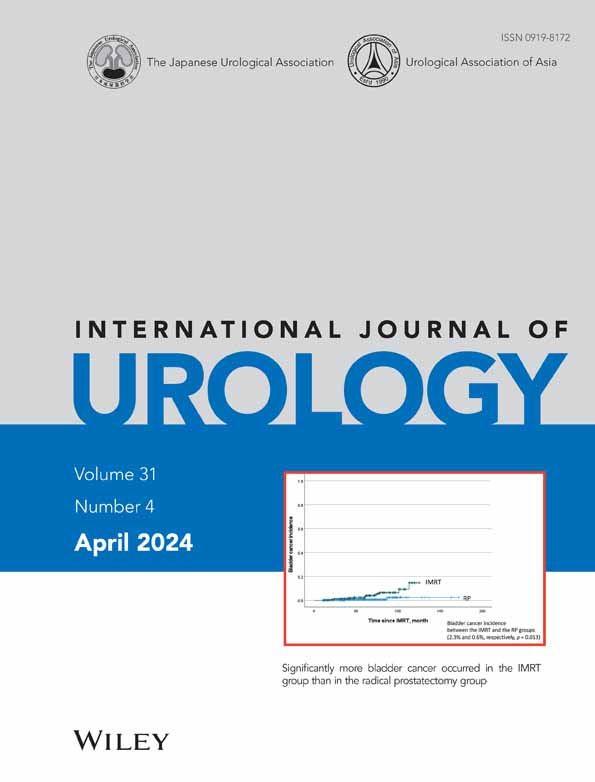Validation of schedules for optimal prostate-specific antigen monitoring after radical prostatectomy
Abstract
Background
Early detection of biochemical recurrence (BCR) after radical prostatectomy (RP) is crucial for early treatment and improving survival outcomes. The optimal prostate-specific antigen (PSA) monitoring remains unclear, and several models have been proposed. We aimed to externally validate four models for optimal PSA monitoring after RP and propose modifications to improve them.
Methods
We reviewed the clinicopathological data of 896 patients who underwent robot-assisted RP between 2009 and 2022. We examined all PSA values and estimated the PSA value for four monitoring schedules at each time point in the virtual follow-up. We defined the ideal PSA for BCR detection between 0.2 and 0.4 ng/mL.
Results
During the median follow-up of 21.4 months, 128 (14.3%) patients presented BCR. The original and modified Keio models, National Cancer Center Hospital model, and American Urological Association/American Society for Radiation Oncology model detected BCR in 14 (10.9%), three (2.3%), 12 (9.4%), and 11 (8.6%) patients with PSA >0.4 ng/mL. Most patients experienced BCR detected with PSA >0.4 ng/mL during the first year postoperative. The modification of interval within 6 months postoperative avoided BCR detection with PSA >0.4 ng/mL within the first year postoperative in 8/9 (88.9%), 1/2 (50.0%), 5/6 (83.3%), and 4/4 (100%) for the original and modified Keio models, National Cancer Center Hospital model, and American Urological Association/American Society for Radiation Oncology model, respectively.
Conclusion
We validated four models for PSA monitoring after RP to detect BCR and suggested modifications to avoid detections out of the desired range of PSA. These modifications could help to establish an optimal PSA monitoring schedule after RP.
CONFLICT OF INTEREST STATEMENT
The authors declare no conflicts of interest.




